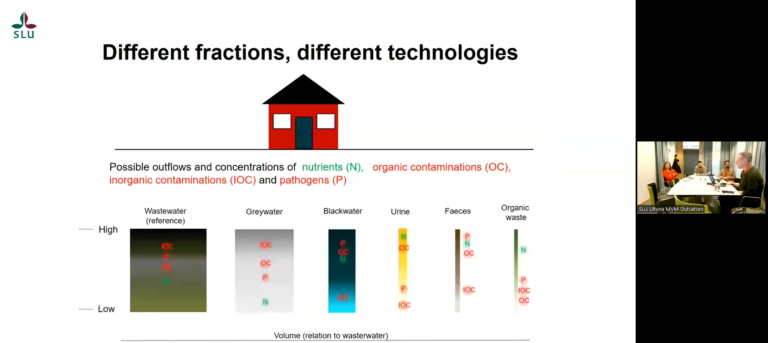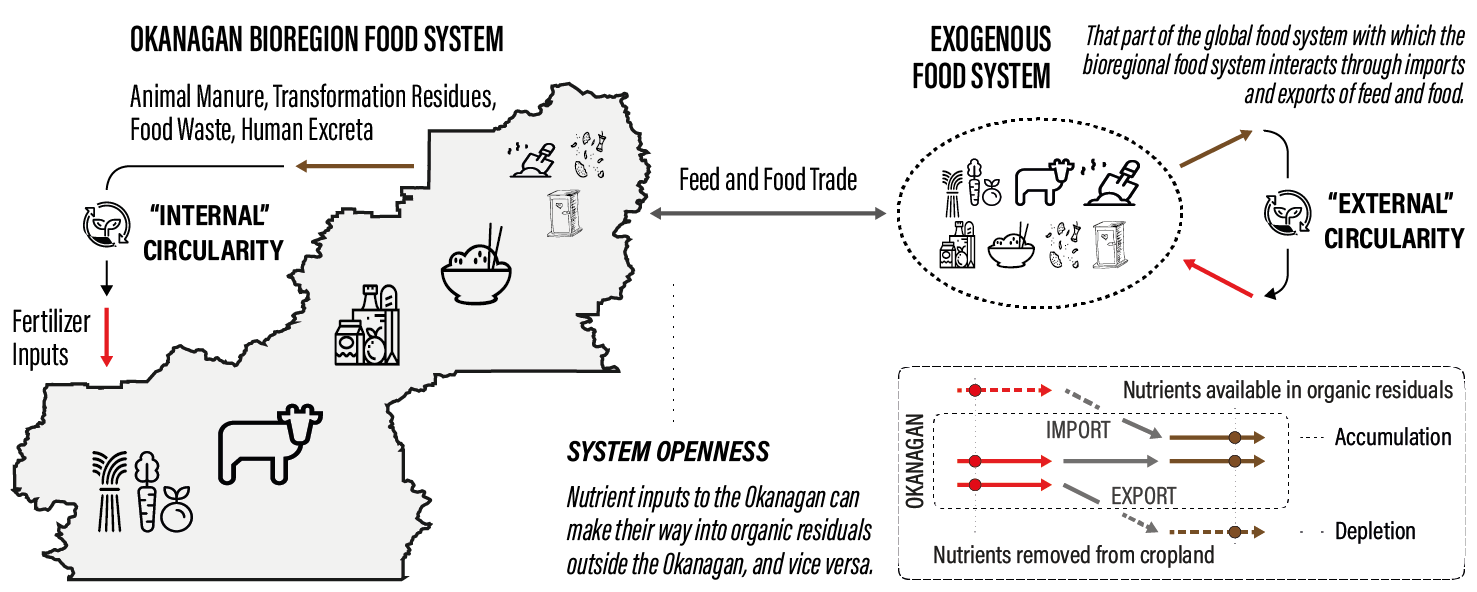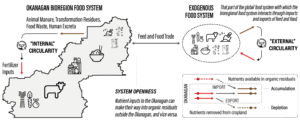We at Kretsloppsteknik are currently giving a hybrid (onsite/online) course on Safe nutrient recycling and management (10 credit) within the
research school Sustainable systems for food, energy and biomaterials (SSFEB). The aim of the course is to give the student knowledge in current waste and wastewater management techniques, with focus on technologies for plant nutrient recovery and reuse. Today, 75% of all biodegradable solid waste is landfilled or dumped and 90% of all wastewater generated is either not treated or only partially treated. In cases when the waste is treated, treatments are not focused on recycling, but rather removal, of plant nutrients, as they can otherwise risk to pollute the environment. If the plant nutrients in the waste and wastewater were collected they could replace 25-50% of the virgin resources used for production of chemical fertilizers used in agriculture. Looking at waste and wastewater as resources is a paradigm shift, and for this shift to happen new technologies and management systems are required. When closing the loop of nutrients there is a risk of recycling unwanted substances as well, e.g. heavy metals and pathogens. Upon completion of the course the student should know the flow of waste and wastewater in society, possible treatment methods for closing the loop of nutrients and the risks associated with closed loop systems, as well as methods for mitigating circulation of unwanted substances.





